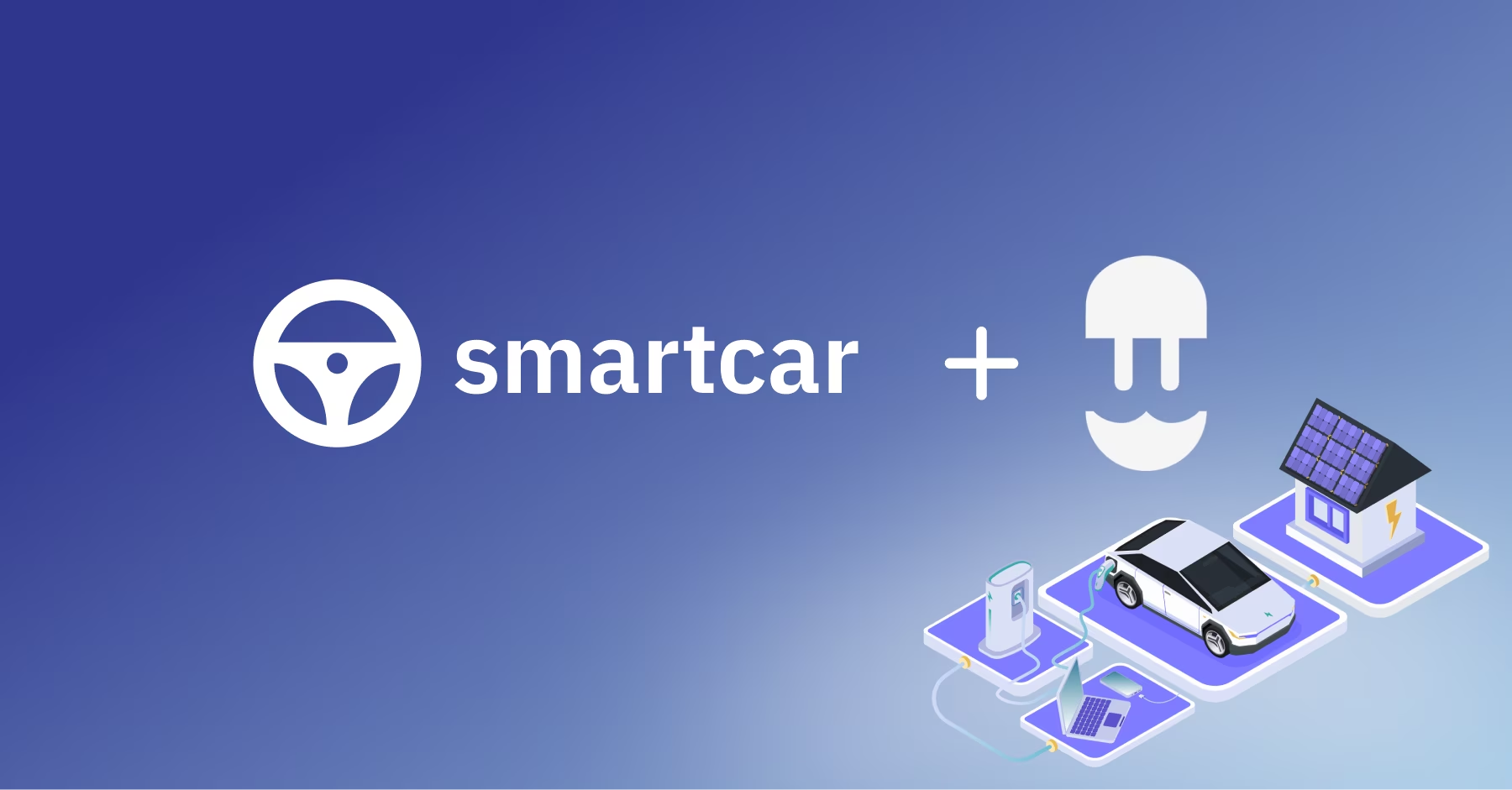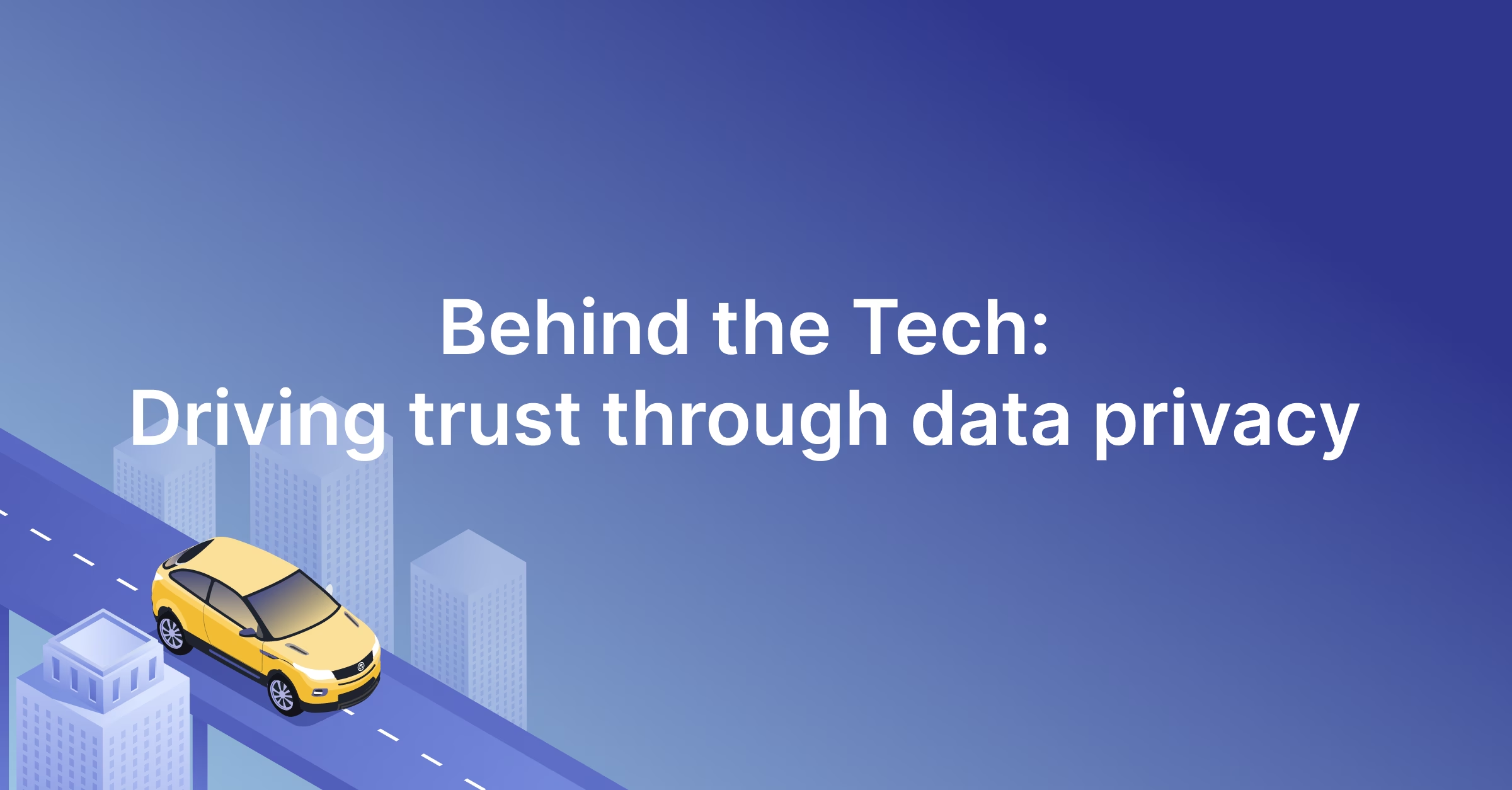The auto industry spent a fair share of time dominating major news outlet headlines in 2021. But, before we dive into what lies ahead, let’s revisit some of the events that shaped discussions around mobility and car technology last year.

New opportunities have opened up for software to meet market needs, whether it’s to support new policies, spur business growth, or make drivers’ lives easier. After a year of building better developer tools for mobility businesses, the Smartcar team came across recurring questions that we believe will shape conversations in 2022.
🚗 Are there enough connected cars for software solutions to become a norm?
💼 What is the potential for new business models to disrupt and improve today's driver experiences?
📱 What new technologies will accelerate EV adoption and infrastructure?
Here are four exciting things we’re looking out for this year.
The push for data privacy
63% of licensed drivers are expected to have a connected car this year, and this number will continue to grow.

Software reigns over the automotive value chain today. Mobility services and subscription-based products are expected to generate over $5 billion in additional revenue by 2026, while EV businesses are projected to make 45% of their overall profit from software by 2025.
But half of consumers who sync data to connected devices — including connected cars — are uncertain if their personal data is being exposed or stored by companies.
Last October, cities and mobility companies including Uber, Lyft, and Spin collaborated to develop the Privacy Principles for Mobility Data. The principles include ensuring input from communities regarding the use of mobility data, clearly communicating the purpose that mobility data will serve, and retaining the minimum amount of mobility data necessary.
These principles also reflect broader calls for consumers to have the right to their own vehicle data and drive connected vehicles without sharing their data with unknown third parties.
We believe transparency and consent will become critical drivers in the success of connected service business models. Mobility apps that use Smartcar’s API build trust with their users through a consent-based authorization flow. This flow shows vehicle owners the exact data points they’re allowing the app to access when connecting their car.
Innovation to meet 2030 emission targets
Last October, 130 state and government heads made their way to Glasgow, Scotland, for the United Nation’s annual Climate Change Conference (COP26). COP26 called for over 30 national and state governments, automakers, and corporations with large fleets to pledge for all new passenger cars and vans to be zero-emission vehicles no later than 2040 worldwide.

Government plans for new and improved infrastructure to support the acceleration to zero emissions will be expedited. At the same time, more IoT-based cars will continue to emerge as the most effective path to mobilize improvements that can be upgraded through software in the future.
One example is the use of car connectivity to help reduce grid emissions through managing EV charging. Optiwatt, a smart charging solution, is launching a new feature this year to allow EV owners to plan charging schedules around low CO2 emission hours using Smartcar’s EV API.
Rolling Energy Resources is a demand response consulting firm and another example of how connected car technology can be used to power behavioral load control. The firm works with major utilities throughout the US and uses Smartcar’s API to obtain EV vehicle data for load research.
Equitable EV ownership
The feasibility of ownership for all licensed drivers is still a work in progress. Over 40% of EV owners in the US make $100,000 to $250,000 annually while over 75% live in single-family homes.
Barriers faced by EV drivers have shown little changes from two years ago, disproportionately impacting drivers with lower wages, who live in lower-income areas, or who reside in apartments or multi-unit homes.

In the coming year, there will be more priority placed on using connected car technology to make EV ownership viable and beneficial for middle- and lower-income car buyers. As efforts to reduce the cost of EVs gain momentum, opportunities will arise for apps and services to improve EV experiences by making education and information more accessible.
Discovering and maintaining an EV within a driver’s budget becomes less of a problem when utilizing the right tools and apps to make better purchasing decisions.
As a buyer, it’s helpful to understand the vehicle’s battery health, the location of chargers in your area, and how you’ll manage charging schedules for off-peak hours to save money. Through apps and services built on Smartcar’s platform, these solutions can make owning any EV the best cost-effective experience.
For example, an EV battery health reporting company, Recurrent, provides EV owners a free monthly report to track their vehicle’s battery health. This information is especially valuable for those considering to purchase a used EV but has questions about battery range and what that might look like in different conditions.
Shaping a new car rental landscape
If you traveled anywhere lately or kept up with headlines in the past 12 months, you might recall the car rental fiasco — the one that drove tourists in Hawaii to rent out U-Hauls.
The volatility of rental and travel demand will continue to alter how businesses manage their fleets and satisfy customers. Connected car data will improve car sharing experiences in contactless settings while giving businesses the building blocks and tools to meet their high demand.
Embedded telematics accelerated contactless car sharing and rentals on platforms like Turo and Coastr. Tasks such as sharing digital car keys, managing bookings, and planning vehicle maintenance can be automated with a secure and seamless integration with connected cars.
Direct communication vehicles also give these businesses the real-time data to track important information for insurers such as mileage, VIN, and location to charge drivers fairly based on usage.
These digitized efforts will help businesses onboard and retain more vehicles by providing drivers with added reliability, safety, and convenience. Beyond boosting customer satisfaction, the ability to tap into connected car data will help car sharing platforms and rental operators as they transition to newer fleets.
A stronger ecosystem between cars and software
In the coming months, consumers can expect to see more car brands and transportation services announce, pilot, and launch ambitious software-driven strategies.
But as cars and applications become increasingly intertwined, companies have a responsibility to make innovation widely accessible and customer-driven. To do this, developers need tools to help them build the future of mobility with fewer limitations.
Smartcar is committed to helping developers build apps and services that will improve the quality of mobility experiences for every driver and passenger. Subscribe to our newsletter to see what our customers are working on in 2022. If you’re interested in learning how we can help your business, schedule a demo with us today!




.jpg)

